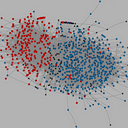It is the Lunar New Year, the year of the Ox. “Wish You a Bullish 2021” has become the standard greeting on this celebratory day. Like every new year within the Christian community, we like to use Psalm 65:11 to thank God as He crowns the year with a bountiful harvest. However, Psalm 65:11 wasn’t the first verse that came to my mind today. It was Psalm 137, “By the rivers of Babylon,” a song of lament by a people in exile.
Every New Year Eve, Chinese Mainlanders gather around and watch the nationally-televised spring gala. It is the Super Bowl Night in China, a rare occasion to glue together people of various groups and tastes. Many hate the spring gala, seeing it as a showcase to project “multi-ethnic harmony and prosperity.” Others are indifferent to the embedded politics and treat it as part of the new year ritual. This year, a song, called Shepherds of Koktokay, rang in my ears. It was heard at this year’s gala.
My parents explained to me how this song has become viral on Douyin (the domestic version of TikTok) and the love story it tells. It is so popular that Koktokay, the previously little-known small town in the land of Uyghurs, is now a top tourist destination. It is a song based on a fictional love between a shepherd and a honey farmer. Like all romances, it has the elements of serendipitous encounter, sacrificial waiting, and departure. This song, this story, a fictional one, moves a nation to tears.
Shepherds of Koktokay fits so conveniently into a political imagination of “the others,” of the “strangers in our own land.” The song brings home a far-flung, exotic place of idyllic beauty and natural abundance, a people that live in the romance of ‘the other’ and the politics of “one of us.”
But, there are other songs. Songs that are unsung. There are other tears, shredded not out of love but fear. There are other realities, not of pasture, but prisons. “How can we sing the songs of the LORD while in a foreign land?” (Psalm 137:4). That is Israel’s lament of life in exile and the yearning to restore hope and home. I think about those in exile, those who become strangers in a foreign land, those born strangers in their own land, and those who are not free, consumed by the culture and the power of the day.
I hope this new year brings the light that shines into darkness, and a stream of water that grows the rose of hope in the desert.
